The FOSS Force Linux App of the Week — Proton Authenticator
Proton Authenticator is an open source, privacy-focused Authenticator app that lets you securely sync and manage 2FA codes across all your devices—without ads, tracking, or lock-in.
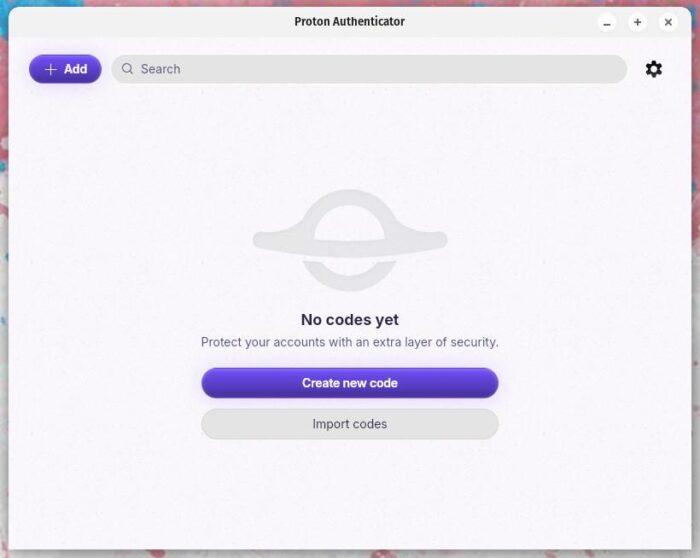
The makers of Proton Mail and Proton VPN have released Proton Authenticator, a well-designed 2FA authenticator app that includes a native version for Linux, with Windows, macOS, Android, and iOS also supported.
If you’re like me, two-factor authentication is a necessity in a world that is constantly under attack by hackers and scammers. One thing you can do to help yourself is add 2FA to your authentication process for every account you have that offers the service. By requiring a second verification step, 2FA makes it much more difficult for attackers to break into your accounts — even if they manage to steal your password.
For the Uninitiated: What Is 2FA?
2FA works like this:
- You go to log in to a site with your usual credentials (username/password).
- The authentication process asks you for a 6-digit 2FA code.
- You go to your phone, open your 2FA app, locate the account in question, and then memorize the code.
- Type the code into the authentication pop-up, and you should be allowed into your account.
Without that 6-digit code, you cannot gain access to your account. Simple.
However, I don’t always have my phone by my side, which means, to access an account with 2FA, I have to grab my phone and take it to my desk. I don’t always want to take those extra steps, so I was glad to hear that Proton has developed its own Authenticator, which happens to offer a version for Linux that’s easy to install and use. After installation, it allows you to create (or import) codes for 2FA authentication, and it includes features like:
- Sync between devices.
- App lock.
- Automatic backups.
- Import/export.
The app is also free to install and use, and doesn’t require a Proton account.
Installing Proton Authenticator
There are installation binaries available for Debian-based (.deb) and Fedora-based (.rpm) distributions. First, download the installation package suitable for your distribution from the Proton Authenticator download page. Once the file is downloaded, you can install it using one of two methods:
- Double-click the downloaded file and allow your package manager to take care of the installation — this requires an app like Eddy, an app for easily installing, updating, and uninstalling .deb packages — to be installed.
- Open a terminal window and install it with one of the following commands:
sudo dpkg -i ProtonAuthenticator*.debsudo rpm -i ProtonAuthenticator*.rpm
Using Proton Authenticator
Using Proton Authenticator is as easy as using any tool of the same nature. The only difference is that where your Android or iOS app can scan a QR code to add an account, you have to manually type the secret key that’s presented along with the QR code.
To create a new entry, open Proton Authenticator, and click “Create new code.” In the resulting window, add a title, type the secret key, and add an issuer. If you expand the advanced options, you can change the number of digits for the key (six is the norm), change the time interval, switch algorithms, and change the type — which might be necessary to fit non-standard 2FA requirements.
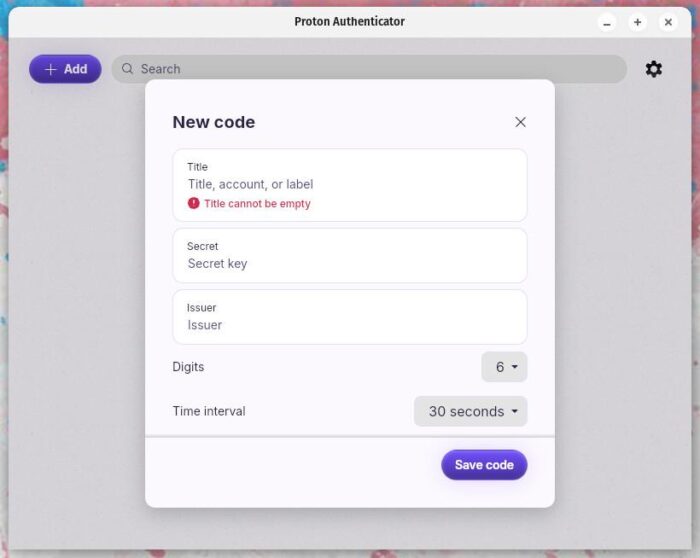
Once you’ve filled everything out, click “Save code” and you’re done.
When you need to use the Proton Authenticator to access a 2FA key, simply open the app, locate the entry in question, and you’ll see the time-based 2FA code (Figure 3) you can type to gain access to the account.
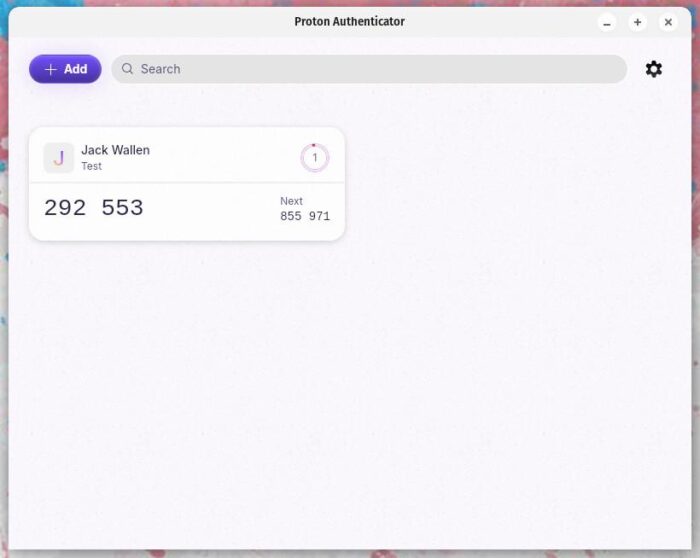
And that, my friends, is all there is to this handy new app. If you need a 2FA authenticator, this app from Proton is an outstanding option. It’s open source — licensed under GPLv3 or later — and it works seamlessly on Linux, which is a big plus in my book.

Jack Wallen is an award-winning writer for TechRepublic, ZDNET, The New Stack, and Linux New Media. He’s covered a variety of topics for over twenty years and is an avid promoter of open source. Jack is also a novelist with over 50 published works of fiction. For more news about Jack Wallen, visit his website.


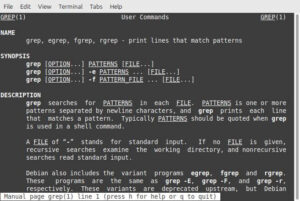
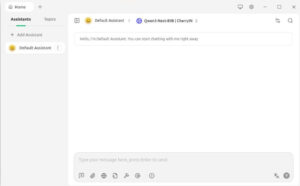

I got subscription to Proton VPN and cancelled after a year. Proton kept on charging my credit card after that and I had to contact my credit card provider to block the payments. At that point my Proton account got disabled and customer service made it clear that it will be restored only if they get to charge my credit card on perpetuity.
Any technical merit gets wiped out by such business practices.